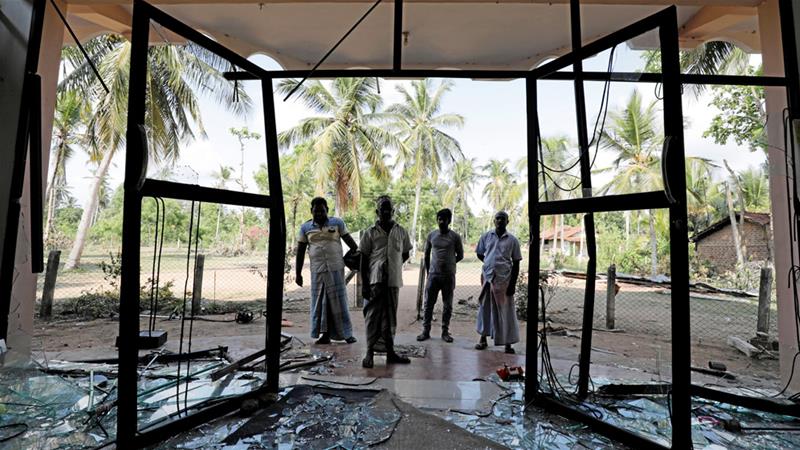This is the worst outbreak of violence since the Easter bombings in the island nation.

Colombo: On Monday afternoon, mobs unleashed sustained violence on a group of villages in Kurunegala district in the island’s North-Western Province, damaging several mosques in the area. Dozens of homes and shops were torched. The allegedly planned attacks prompted a police curfew and several residents spent the night in nearby jungles, The Hindu reported.
A 45-year-old man, who ran a timber store, died of stab injuries, even as two busloads of people, aided by local goons, carried out raging attacks on mosques, Muslim-owned shops and homes on May 13 at Kurunegala in Sri Lanka.
This is the worst outbreak of violence since the Easter bombings in the island nation.
“The fact that the mobs arrived in buses showed that these attacks were planned,” said Hilmy Ahmed, vice-president of the Muslim Council of Sri Lanka, an umbrella body of Muslim civil society organisations. “It was very much like the previous instances of anti-Muslim attacks,” he told The Hindu on Tuesday.
Sri Lanka has partially lifted an overnight curfew imposed nationwide after the worst bout of anti-Muslim violence since the deadly Easter Sunday bombings.
In several towns, police fired into the air and used tear gas to disperse mobs.
Tensions have been high since Islamist militants attacked churches and hotels three weeks ago on Easter Sunday, killing more than 250 people.
In a televised address, Police Chief Chandana Wickramaratne warned that officers would respond to rioters with maximum force.
Authorities also imposed a temporary ban on social media networks and messaging apps, including WhatsApp, after a clash in another part of the country was traced to a dispute on Facebook. A police source said police had fired tear gas to disperse mobs in some places in North Western Province.
In the north-western town of Kiniyama, hundreds of people stormed Abrar mosque, destroying windows and doors, burning Korans and urinating in the area of ablutions according to witnesses. The attack was triggered by a group of people demanding a search of the building after soldiers inspected a lake nearby looking for weapons, Reuters news agency reported. Authorities suspect lakes and wells are being used as hiding places to conceal weapons.
A 34-year-old man who was at the mosque said about 150-200 came towards the mosque with rods and swords on Sunday but the Muslims who were in the mosque persuaded them to go away with the help of the police.
But they came back and this time there were about 1,300 people. The Muslims, huddled in the mosque, asked the police to fire in the air to disperse the mob, but the police said the people wanted to inspect the mosque for weapons. Then the crowd surged into the mosque and ransacked it, the witness said.
“They destroyed and burned Korans, broke every glass window and door and urinated on the water storage which Muslims used to take ablution,” he said in a report by News18.
Police spokesman Gunasekera did not respond to a request for comment on the incident. But in an emailed statement he said there had been some damage to property in Hettipola area of Kurunegala district but no injuries reported.
Prime Minister Ranil Wickremesinghe also appealed for calm, saying the current unrest was hampering the investigation into last month’s attacks.
On May 14, a special police team arrested Amith Weerasinghe of Mahason Balakaya, a reactionary Sinhala-Buddhist group; and Namal Kumara, a self-declared anti-corruption activist. Thirteen others were also arrested.
Muslims make up nearly 10% of Sri Lanka’s 22 million people, who are predominantly Sinhalese Buddhists. Mob violence in central Sri Lanka targeting Muslim communities in March of last year prompted the government to declare a state of emergency.
Easter Sunday incident
On Sunday 21 April six near-simultaneous suicide bombs exploded at hotels and churches across the country. Hours later, two more bombs were detonated, with fewer casualties, as police closed in on those behind the bombings.
More than 250 people were killed in the wave of the attacks which stunned the world and the country – Sri Lanka was weeks away from marking 10 years of relative peace since the end of its brutal civil war.
Police have blamed two local Islamist groups for the Easter Sunday bombings and dozens of arrests have been made in the weeks since. The Islamic State group has said it was involved but has given no details.